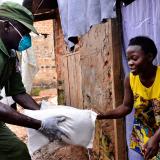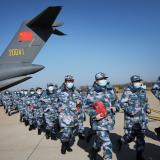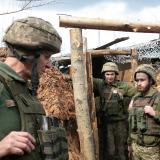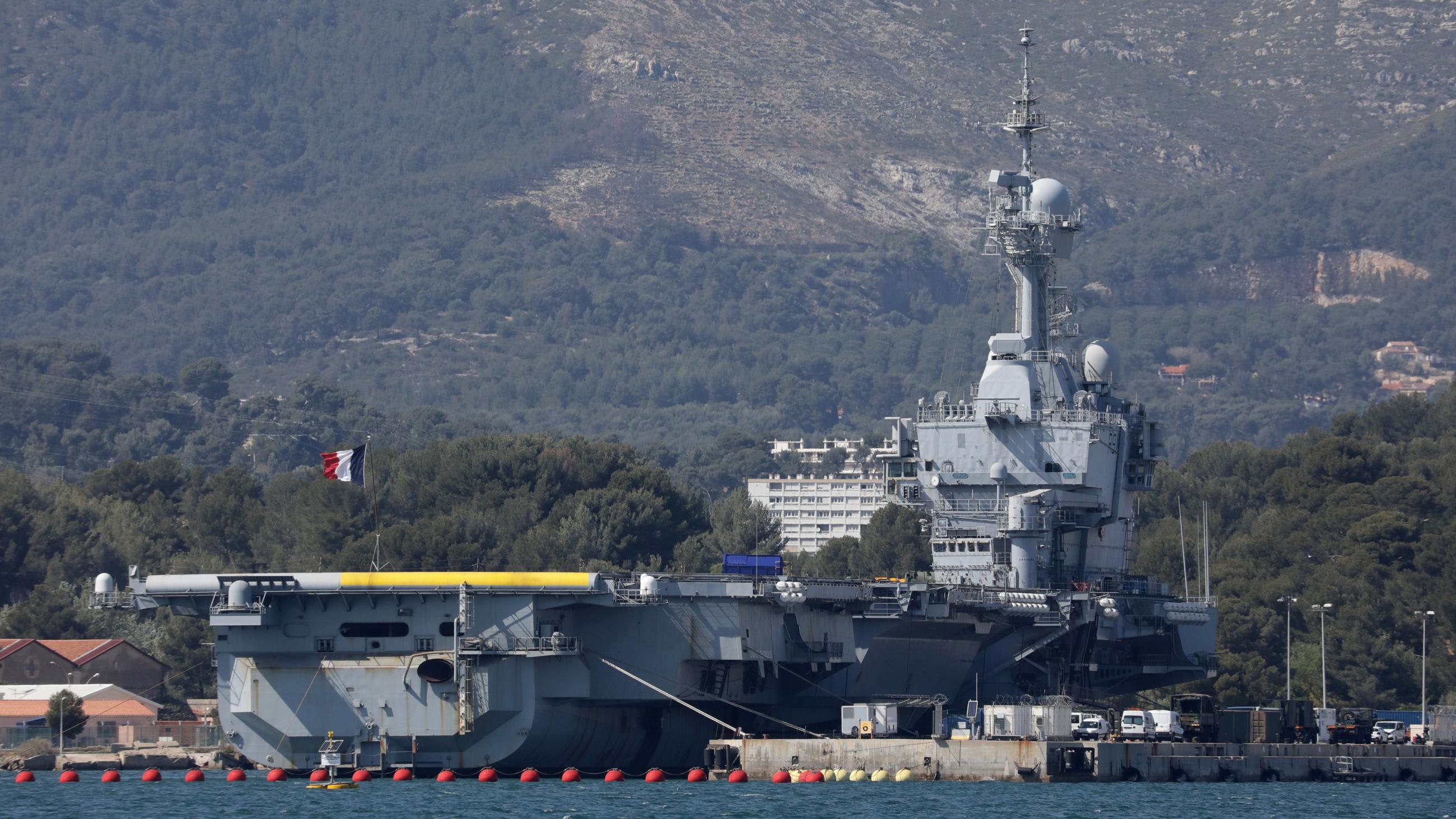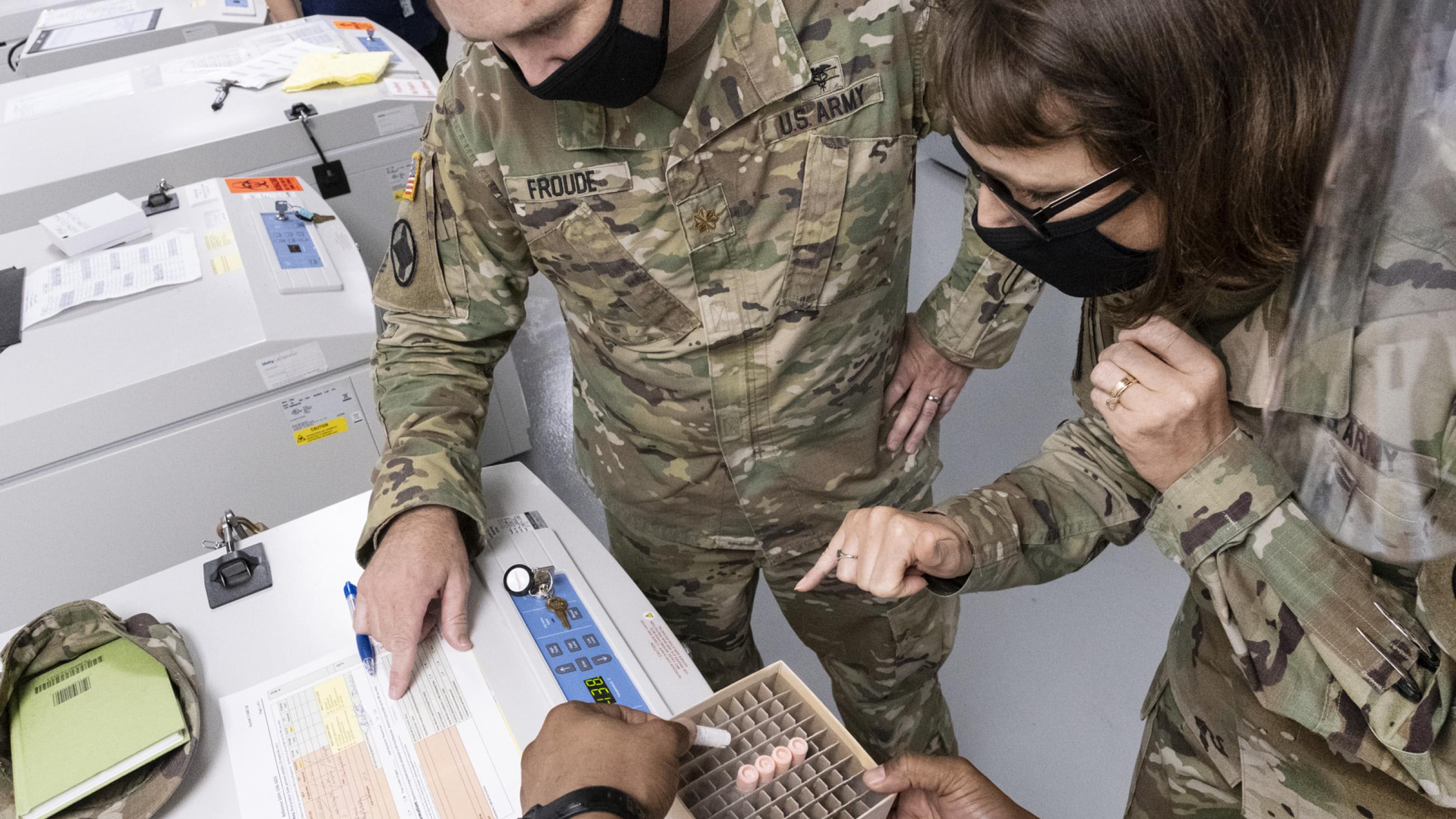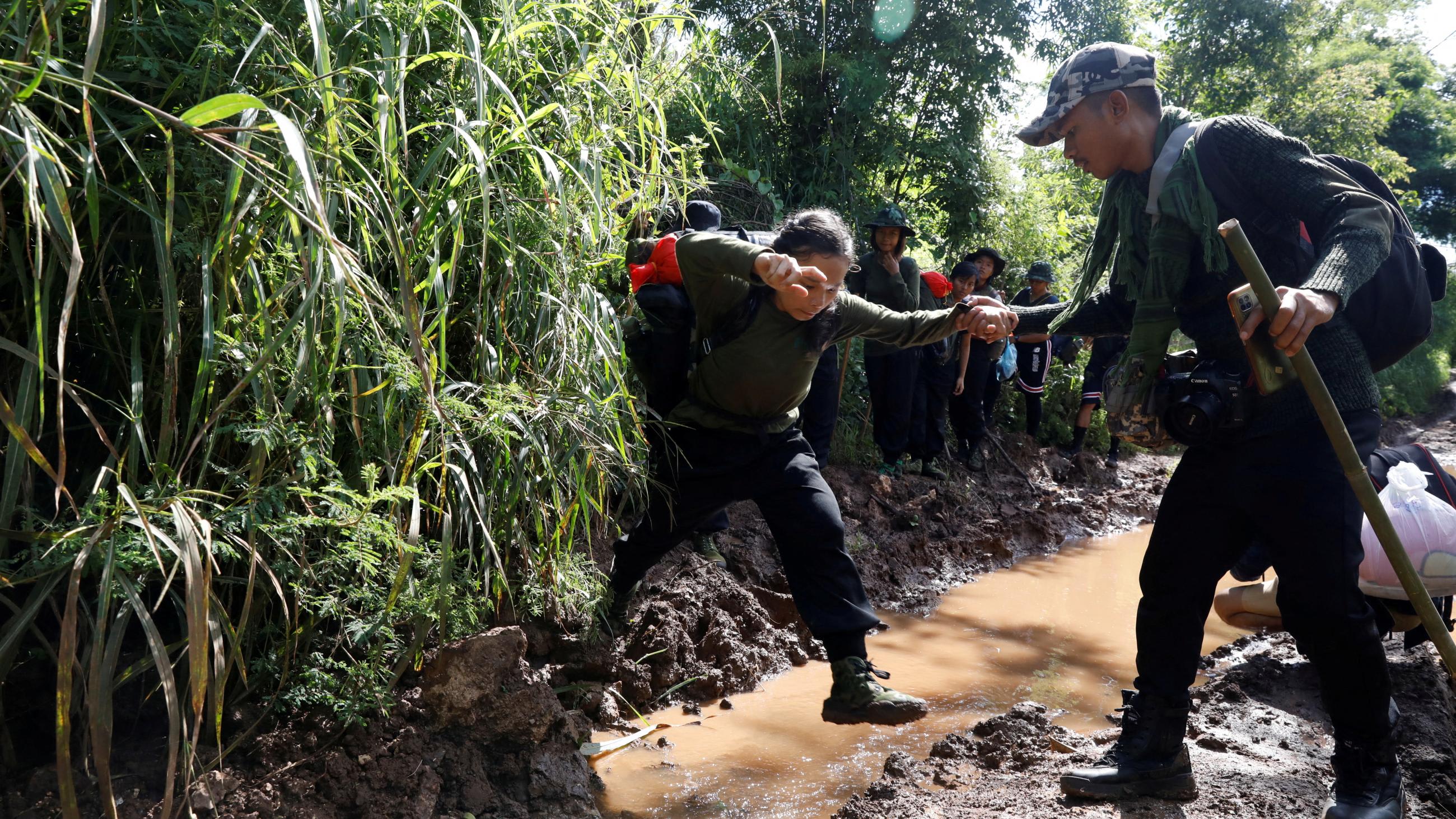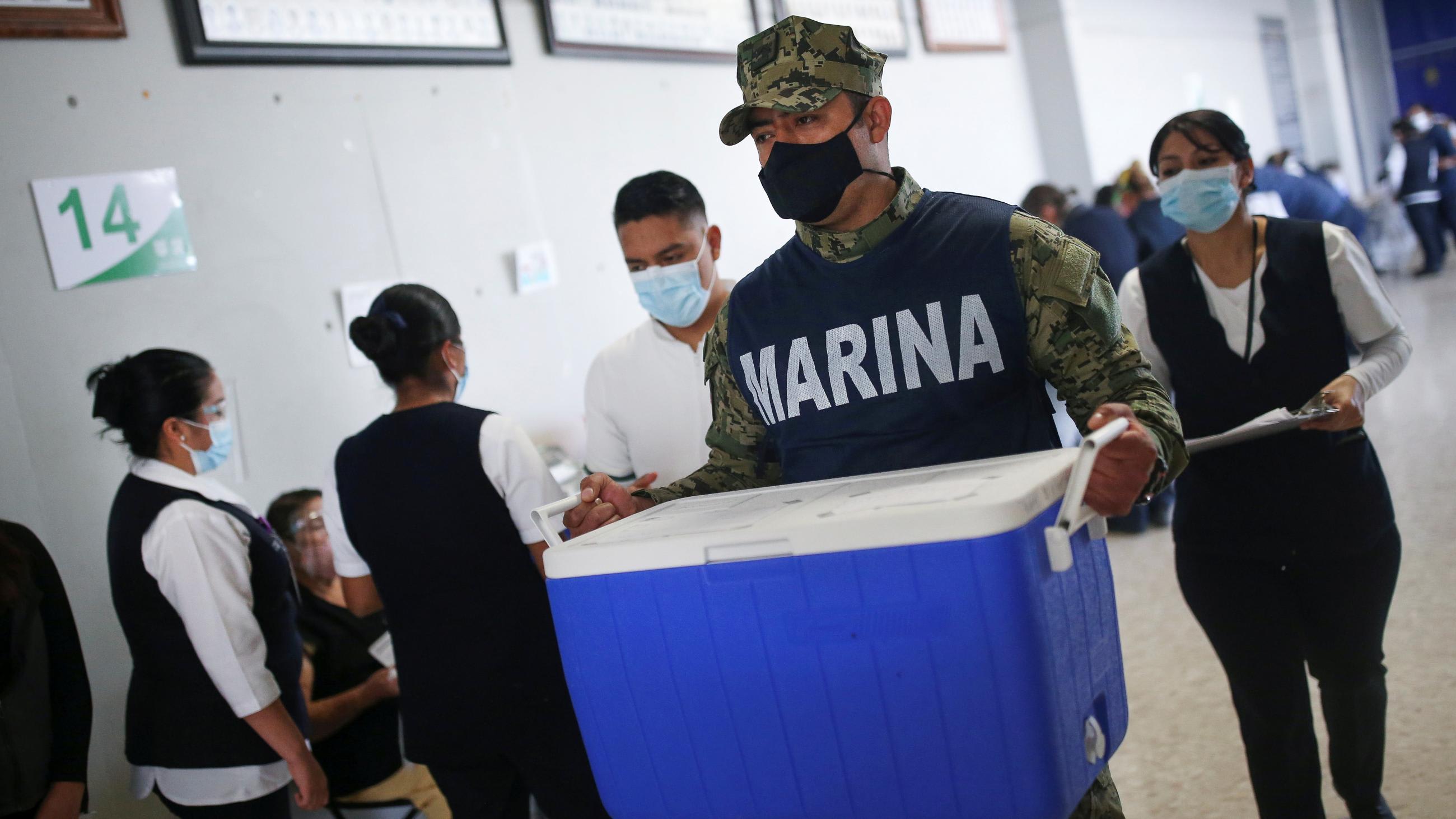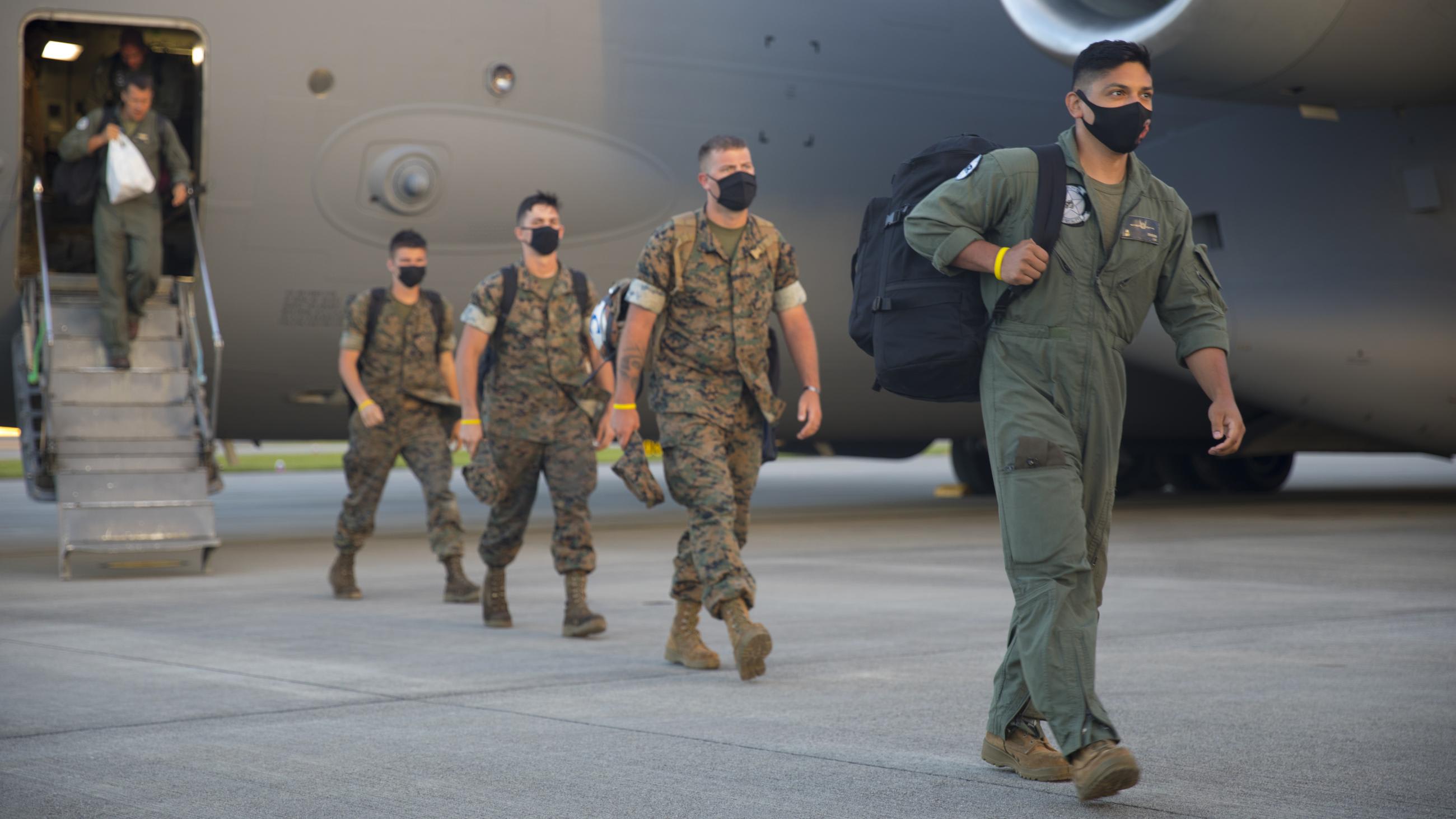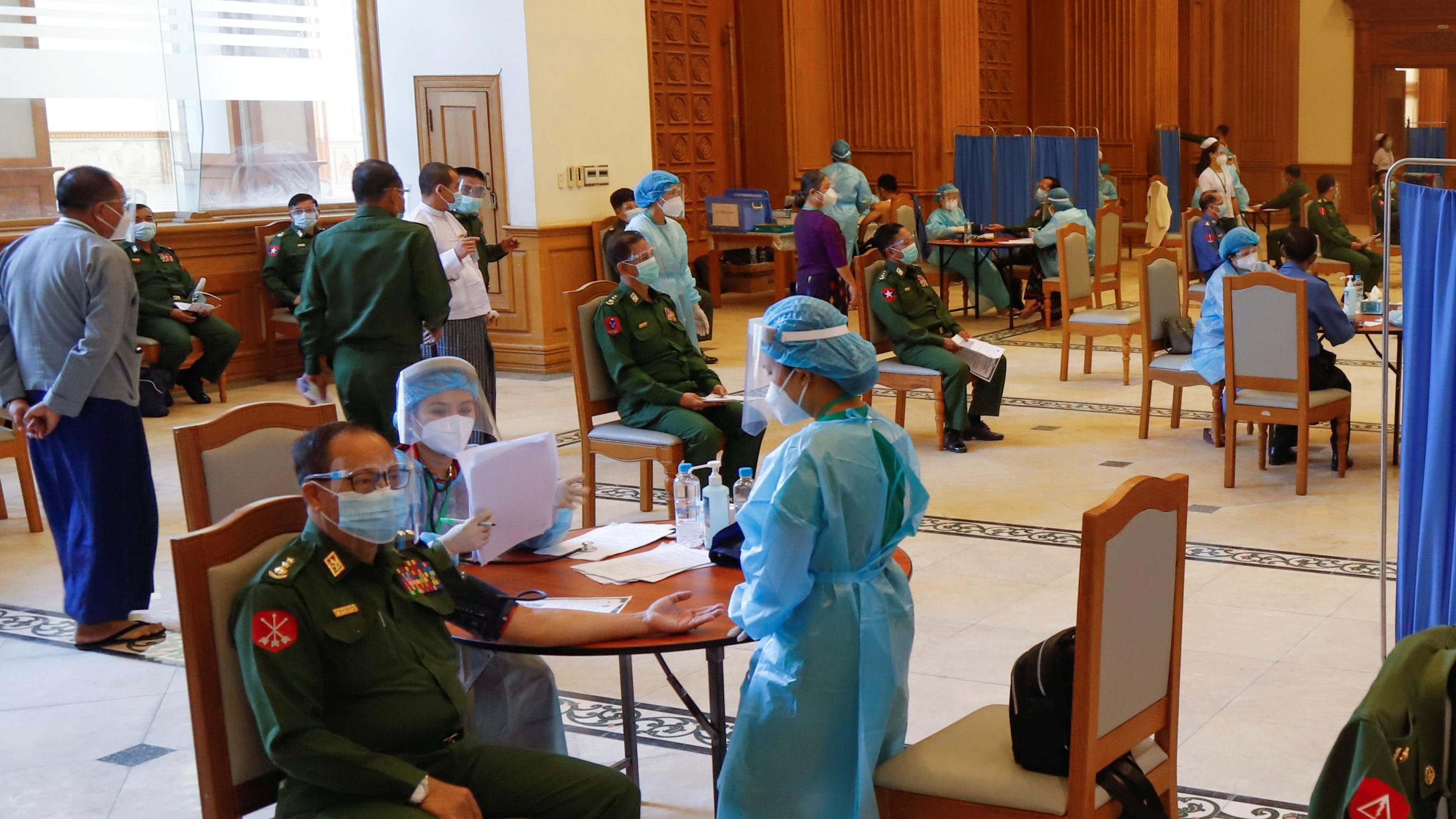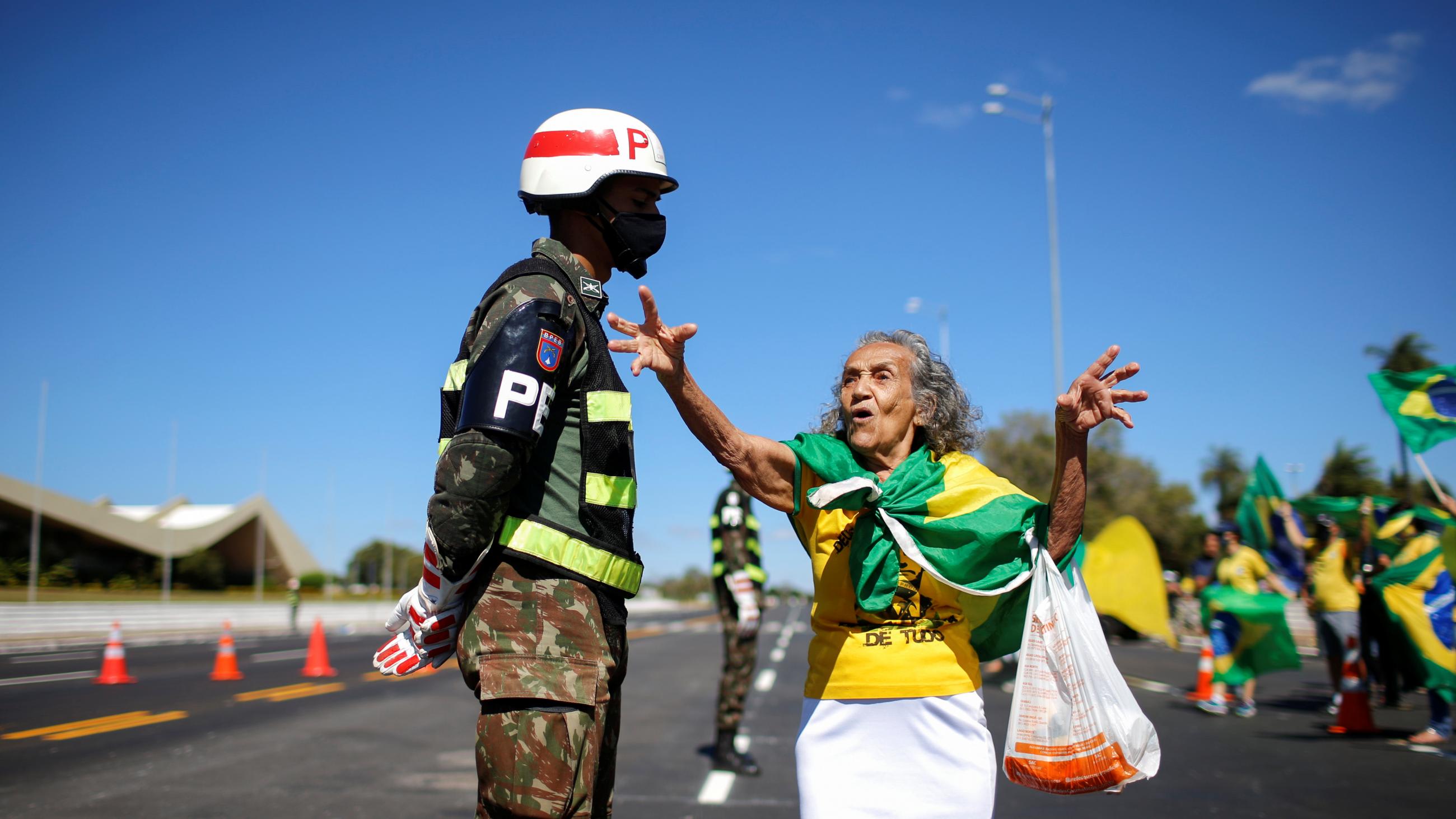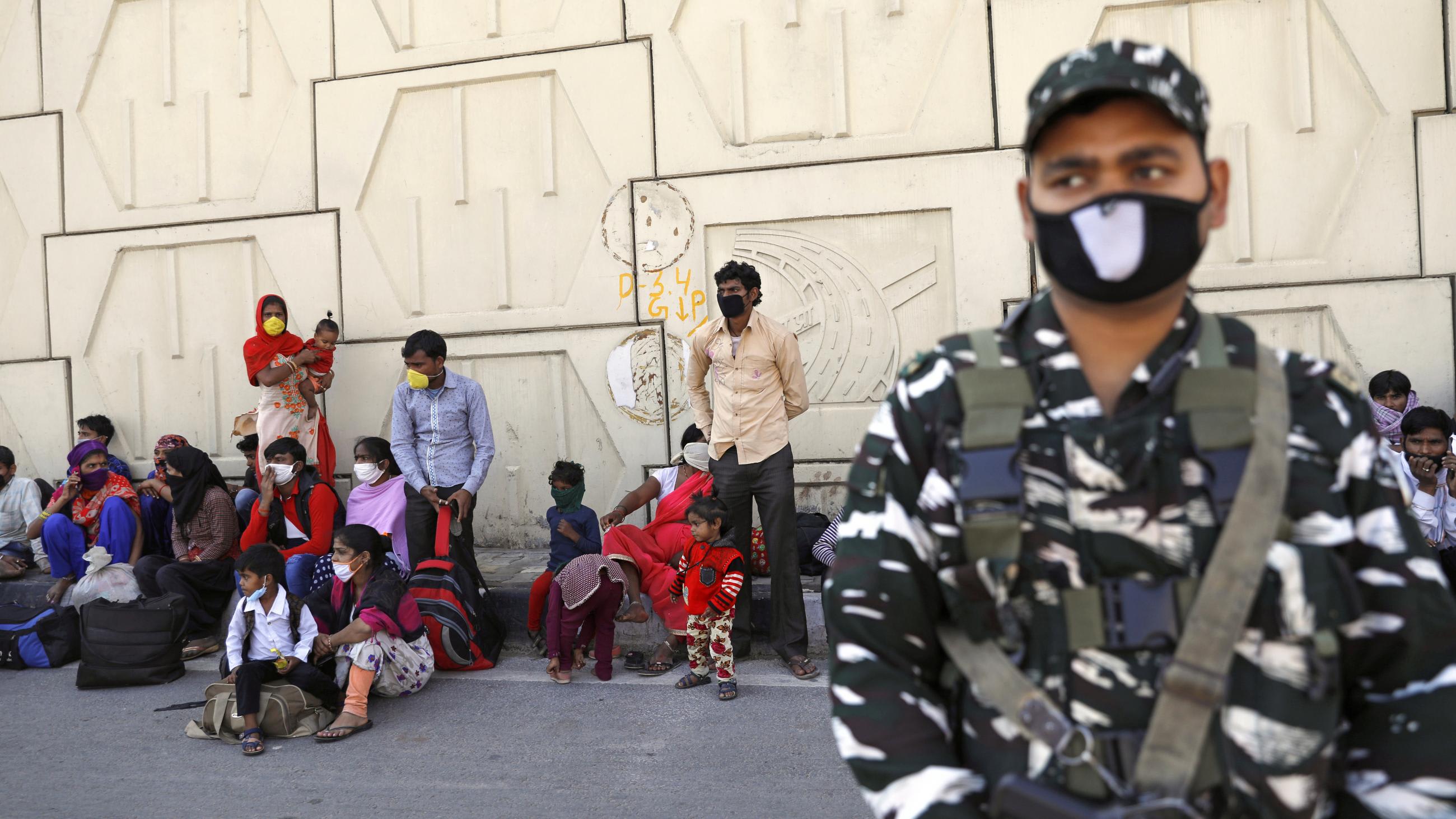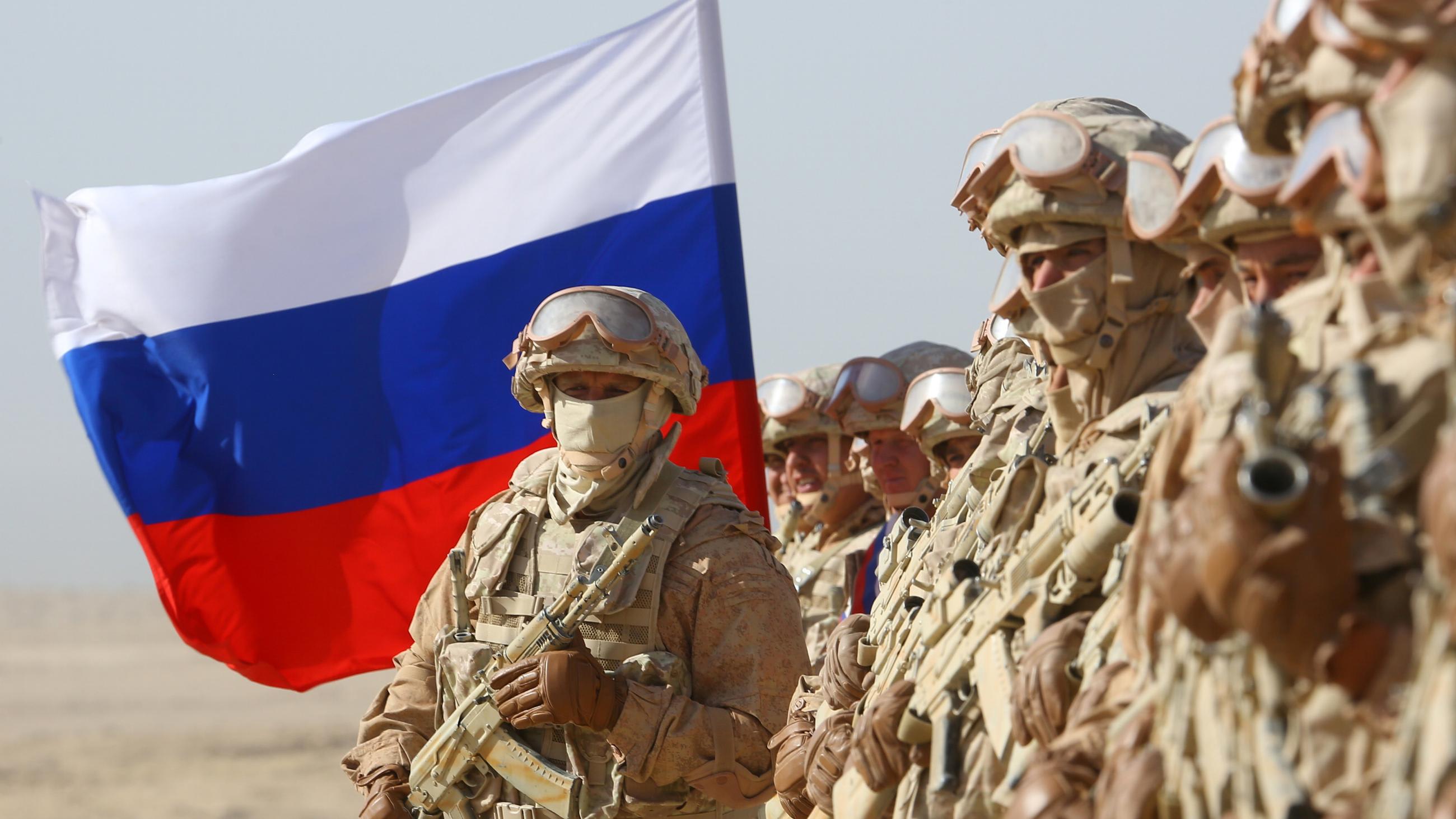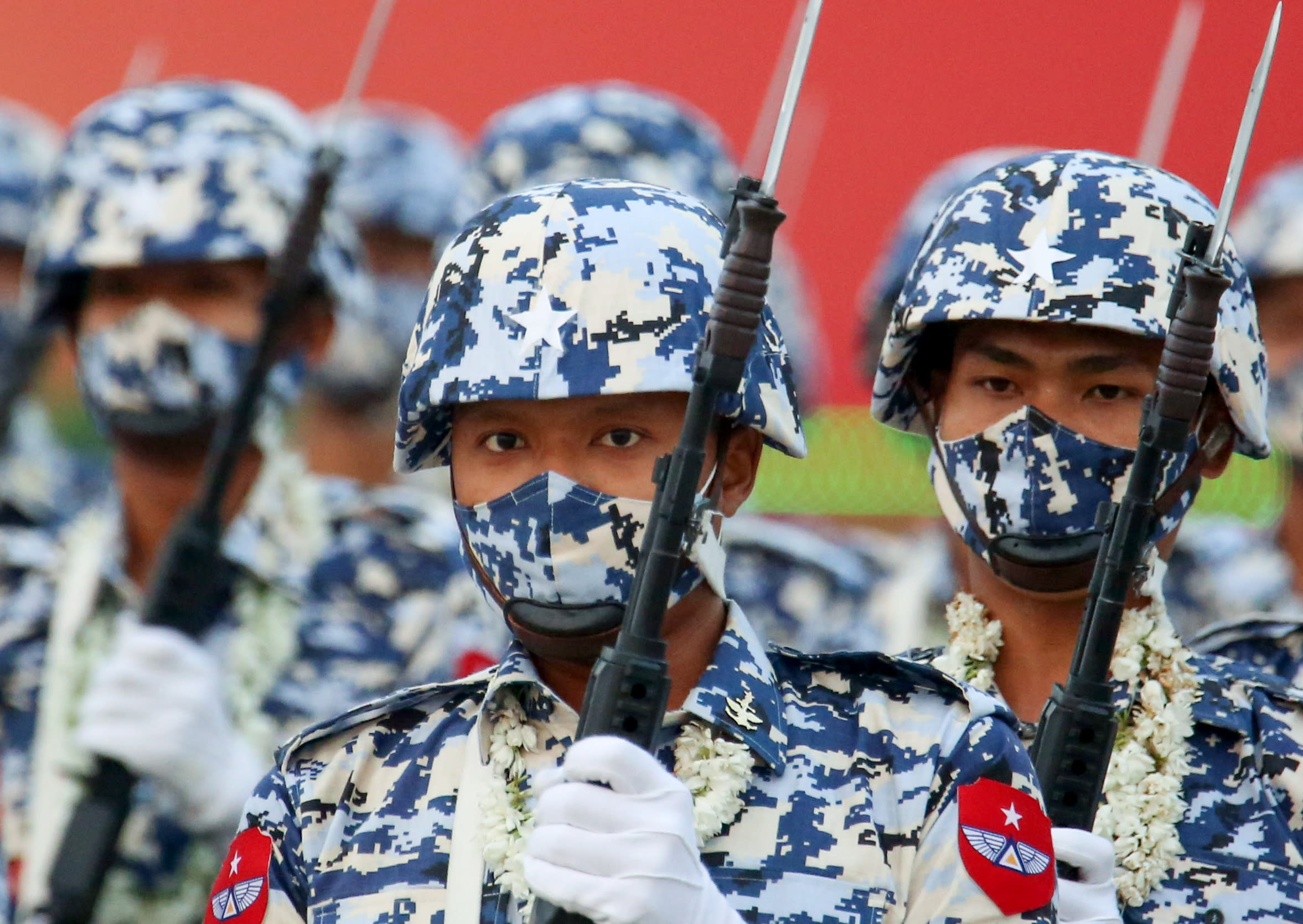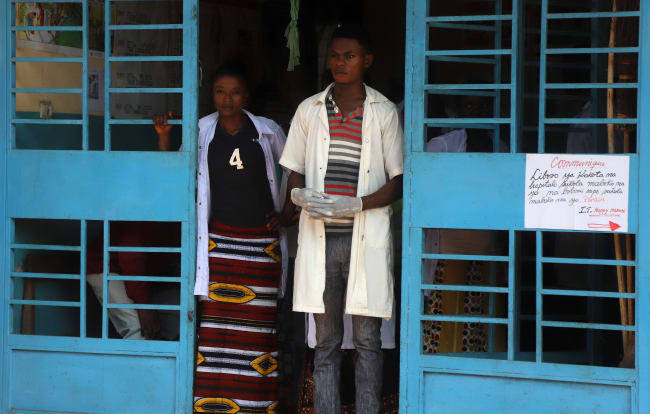COVID-19 has wended its way into every corner of life, including the military, from bases to the front lines.
With tensions heightened in Ukraine over a possible Russian conflict, concerns about COVID-19's impact on troops is high. Not just in Ukraine, but across the globe, the pandemic has changed the conversation around military preparedness and challenged and reshaped military relations within countries and between nations.
Defense spaces have also served as proving grounds for medical innovation. For instance, in many countries, the armed forces have been at the forefront of vaccine development, administration, and other pandemic aid. And personal protective equipment has become an indispensable part of many military uniforms.
Our slideshow shows some of the ways COVID-19 and militaries have collided.
